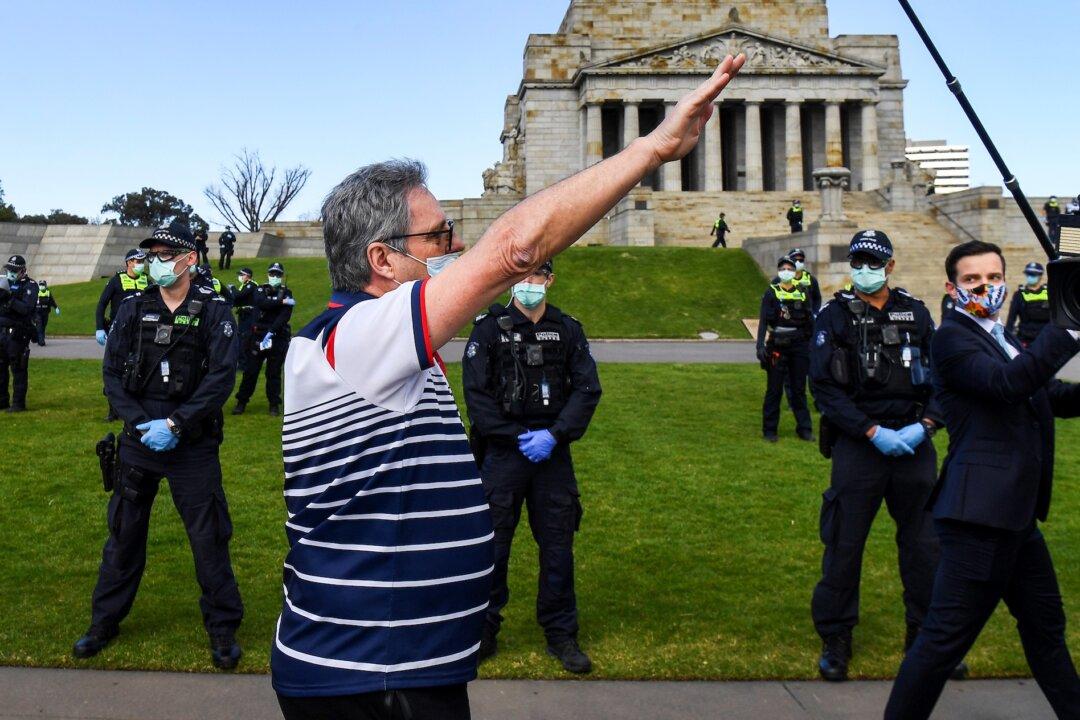Threat levels of violent extremism linked to COVID lockdowns have decreased markedly over the past year, according to Australia’s domestic spy chief.
“It is true; there are less people in this country who want to conduct active violence in the name of their cause,” said Mike Burgess, head of the Australian Security Intelligence Organisation (ASIO).




